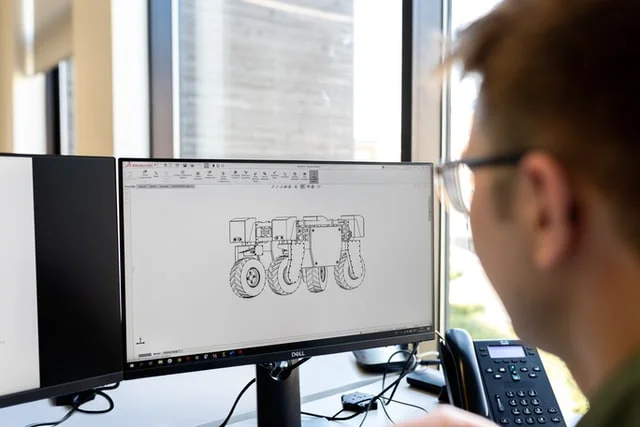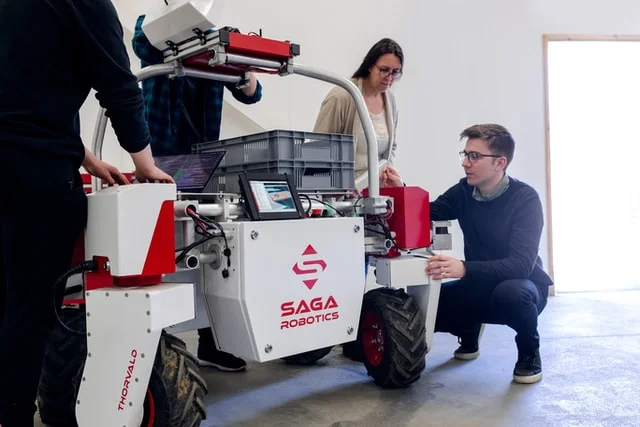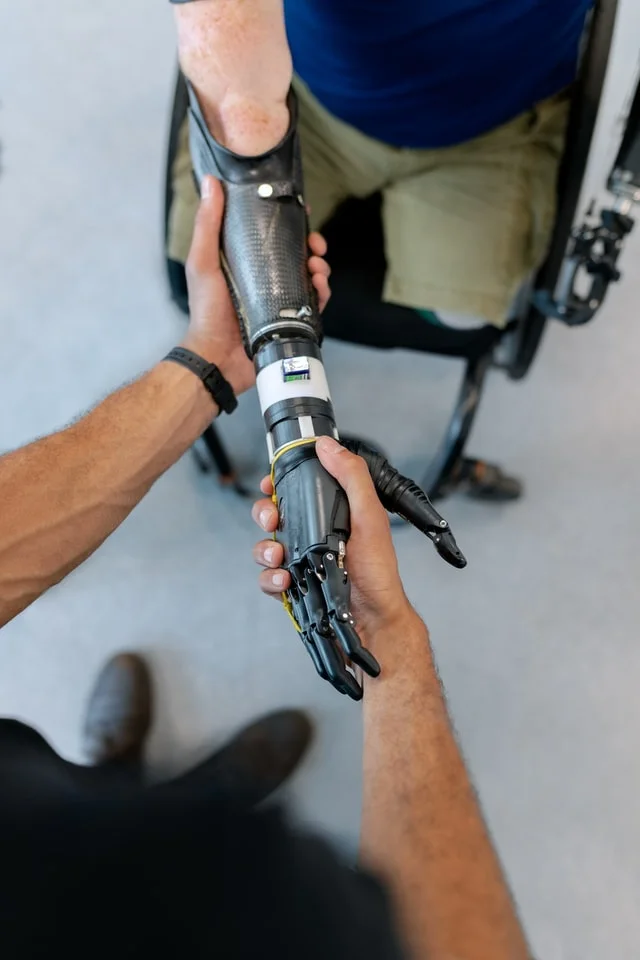Guess What: Mechanical Engineering is the Next Big Thing
May 11, 2022
Jocelyn

Image source: ThisisEngineering RAEng, Unsplash
There is a constant demand for products and sectors like electric vehicles, automation, biomechatronics, and more.
But what will the world become without mechanical engineers around to bring more innovation and improvement to these sectors that we so heavily rely on?
The mechanical engineering market is expected to grow even bigger in the next ten years. If your interest lies in this industry, it is time you pay attention to related programmes. Your diploma or degree might lead you to great opportunities!
We’ve compiled five up-and-coming mechanical engineering fields for you to discover as you journey into this industry.
5 Promising Fields in Mechanical Engineering That You Must Explore
1. Automation & robotics
Imagine a manufacturing industry without workplace hazards. What a safe environment that would be!
Automation and robotics can improve the manufacturing industry in all kinds of ways, including sustaining quality standards, enhancing results and reliability, as well as reducing accidents.
Mechanical engineers are needed to design and create these machines. Some components include control systems, power plants, structures, and more. Getting into this field also ensures a stable career even long after many occupations are replaced by machines in the future.
2. Electric vehicles

Image source: Michael Fousert, Unsplash
Electric vehicles (Tesla, anyone?) save up on resources, energy, money, and most importantly, they play a huge role in reducing pollution. Your role in this field indirectly contributes to the environment as well!
Hence, the electric transportation industry will need more mechanical engineers to lead the innovation of electric vehicle components (steering controls, drivetrains, transmissions), and also some traditional components, such as brakes and heating/cooling systems.
In addition, mechanical engineers are needed to verify the safety, cost-effectiveness and efficiency of these electric vehicles.
3. Nanoengineering

Image source: Chokniti Khongchum, Pexels
One of the promising industries of the future is nanoengineering. However, you may wonder what this has to do with mechanical engineering.
Nanoengineering, or the control and manipulation of materials at a miniscule level, overlaps with mechanical engineering, according to the American Society of Mechanical Engineers (ASME).
This is because nanotech can assist in achieving a more sustainable environment. From creating lighter materials for electric vehicles to cultivating renewable energy for other industries, nanotechnology can be a real game-changer for the future of humanity.
4. Biomechatronics
Image source: ThisisEngineering RAEng
Biomechatronics integrates biology with mechatronics to create robots that mimic movements and actions of the human body.
If you’re a fan of sci-fi movies, you know it won’t be long until we get to see robots exhibiting sophisticated actions similar to humans. And you can play a role in making this happen.
There is a huge rise in the demand for robots in industries like pharmacy, life sciences, automotive, plastic & rubber, electronics, and more. Mechanical engineers are needed to design, build, and test prototypes before they can be approved for use.
5. Water purification & treatment

Image source: Ivan Bandura, Unsplash
Clean water is vital in life. This is why wastewater purification and treatment must be done meticulously.
To give you a glimpse of how water treatment works: Wastewater from industries, businesses and homes is delivered to treatment plants. The waste will be cleaned and treated, and then discharged into waterways. It is also reused for crops, aquatic life, and most commonly, as drinking water. Now you see why clean water is vital, don’t you?
So, mechanical engineers’ main involvements in this field are to design and maintain the piping to ensure efficient water flow, design tools and machines for specific functions in water treatment, and more.
Will I get a job with a diploma in mechanical engineering?

Image source: ThisisEngineering RAEng
Of course! Some students prefer to go for a diploma instead of a degree because they can enter the workforce sooner. A diploma only takes around 2 years to complete, and it is equivalent to the first year in its degree counterpart. Some of your job options and estimated salary (per year) include:
- Mechanical engineer: RM 32,294
- Mechanical technician: RM 15,940
- Field service engineer: RM 35,650
- Mechanical design engineer: RM 33,031
- Product development engineer: RM 47,725
You can learn more about mechanical engineering programmes and jobs here.
Study Mechanical Engineering & Explore More Roles
Mechanical engineering is now on the rise in engineering. It is a versatile programme that leads you to plenty of different sectors. With the list we’ve detailed above, we’re sure there is a specific field that you already have in mind.
And by all means, go for it!
You might be interested in...
- Global Learning at the Crossroads: Canada–Malaysia’s Evolving Education Partnership
- How AI is Powering the Next Wave of MSME Growth in Malaysia
- Malaysian Private Universities Making a Mark in Global Rankings
- Benchmarking Malaysian Private Universities Against Their ASEAN Peers
- Fastest-Rising Malaysian Universities in the QS Rankings (2023‑2025)
- Sunway University Climbs to Global Top 500 in QS Rankings 2026
- Trusted by Top Universities: EasyUni’s Exclusive Visit to Sunway University
- Wawasan Open University and Sophic Automation Partner to Offer Work-Based Learning for Engineering Students
- Sunway University: Malaysia’s Best Cambridge A-Level College with 11 Years of Excellence
- Top Malaysian Universities in QS Asia Rankings 2025
 +60173309581
+60173309581






